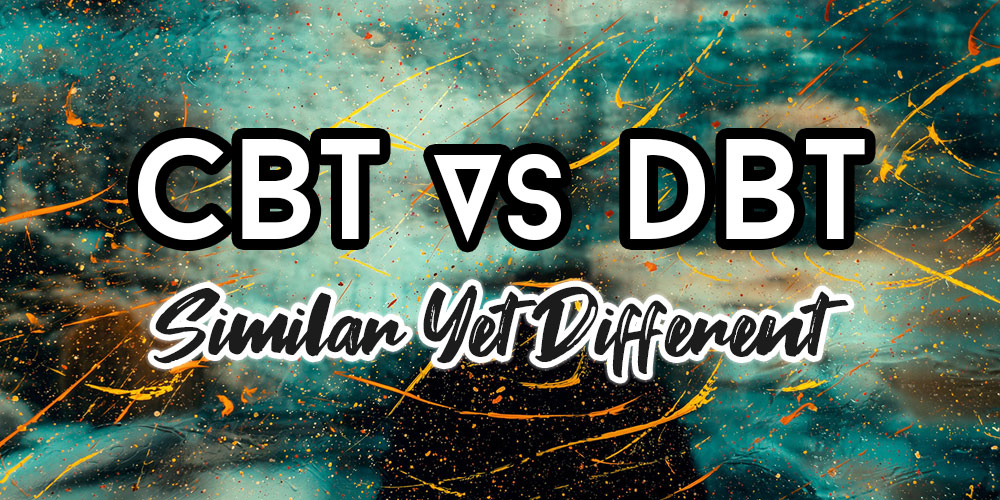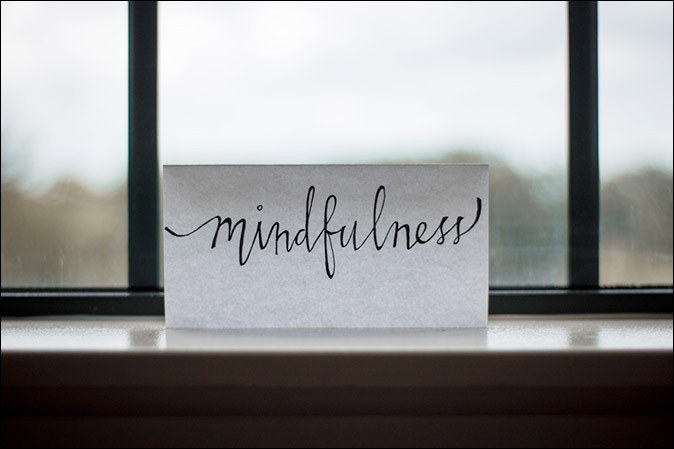
Behavioral therapies, like CBT vs DBT, are terms that sound more intimidating than they are in actuality.
Sometimes called psycho-social interventions, these types of therapies are really just a form of communicating and learning about ourselves with guidance from a counselor, psychologist, or psychiatrist.
CBT vs DBT Therapies
Two of the most common and effective behavioral therapies are Cognitive Behavioral Therapy (CBT) and Dialectical Behavior Therapy (DBT).
Both of these treatment approaches are evidence-based, meaning they are grounded in scientific evidence and data that has shown them to work successfully for various conditions.
CBT and DBT can be effective for people suffering from a range of mental health issues, from depression and anxiety to post-traumatic stress disorder and personality disorders. They are even used for treating drug and alcohol addiction.
This is incredibly important considering 1 in 5 adults in the U.S will struggle with some type of mental health issue in a given year, according to the National Alliance on Mental Illness (NAMI).
How does each therapy work, and what are the similarities and differences between CBT vs DBT?
What is Cognitive Behavioral Therapy (CBT)?
Cognitive Behavioral Therapy, or CBT is referred to as a skills-based therapy. Patients undergoing this form of talk therapy learn that there is a correlation between what we think and how we behave and feel.
In essence, our thoughts, behaviors, and emotional feelings all influence each other. Therefore, adapting the way we think and behave to particular situations or life-challenges will markedly improve our mood and emotions, and ultimately the way we feel on a daily basis.

With CBT, much of the work is about focusing on reasoning and logic.
For example, patients who believe themselves to be failures are asked to explain what or who they are measuring their so-called success by, and are those realistic comparisons. A therapist might ask the patient if their loved ones or friends believe they are, in fact, a failure.
Often, when we learn to zoom out of our emotional and mental distress it becomes clear that we do not have to let feelings of inadequacy drive our thoughts, feelings, and behaviors.
Cognitive behavioral therapy is very adaptable to a person’s specific issues and is easily learned as way of managing negative thoughts and emotions.
Some of the more common types of issues CBT is used to treat can include:
- Depression and anxiety
- Post-traumatic stress disorder (PTSD)
- Sleep issues, such as insomnia
- Phobias and panic disorders
- Obsessive-compulsive disorder (OCD)
- Drug or alcohol addiction
One of the reasons CBT as a form of talk therapy is so effective is that it gives a person agency. In other words, as they learn to employ these tools, it becomes obvious that they are in control of their own recovery.
What is Dialectical Behavior Therapy (DBT)?
In truth, Dialectical Behavior Therapy, usually referred to as simply DBT, is really just another form of CBT.
The primary difference between CBT vs DBT is that the focus of DBT is on changing behavioral patterns instead of attempting to think or talk our way out of painful issues.
DBT was initially developed by Marsha Linehan at the University of Washington as a way to treat people suffering from borderline personality disorder, before it was found to be useful for so many other mental health issues.
Many patients with personality disorders experience intense emotional responses to situations in their environment that can cause them to act in self-destructive and impulsive ways.

A person coping with severe feelings of pain or rejection learns with DBT to simply acknowledge their discomfort and still manage to feel safe and normal in whatever environment or social situation they are in.
This empowers people to opt for healthy behaviors rather than harmful or reckless reactions.
Some of the more common mental health disorders that respond well to dialectical behavior therapy include:
- Borderline personality disorder
- Chronic suicidal ideations
- Self-harm, issues such as “cutting” or pulling hair out
- Trauma survivors from sexual assault
- Substance use addiction
4 Modules of Dialectical Behavior Therapy
There are generally two components of DBT that include individual and group therapy sessions.
Each of the two components meet to work on DBT skills training, which is made up of the following 4 Modules:
- Mindfulness
- Interpersonal effectiveness
- Distress tolerance
- Emotion regulation
A primary element of DBT is the mindfulness module, which is a technique that teaches people how to stay grounded and present in each moment, while still acknowledging any pain and discomfort.
Distress tolerance is effective for helping people when emotions run high and teaches soothing techniques and also crisis survival.
Interpersonal effectiveness helps people work with others in a healthy way, including relationships.
Emotion regulation focuses on a better understanding of the function of emotions and how to avoid acting on them.

CBT vs DBT Therapy Treatment
Knowing whether a DBT vs CBT approach will work best for a person is generally determined in a therapeutic setting.
For instance, a person receiving treatment for a substance use disorder may learn that what’s driving their addictive, self-medicating behaviors is a diagnosis of PTSD from a painful or tragic experience they had at some point in their life.
In that case, CBT might be beneficial because learning to change the way they think and behave will alter their feelings. In turn, this can lessen their desire to treat their emotional pain with alcohol or drugs.
Similarly, DBT is useful for patients struggling with intense emotional responses, typical of personality disorders, which compel them to act self-destructively.
Whatever issues someone is suffering from, a vital part of recovery is treating them with compassion and support. Recovery is certainly achievable, especially when a person is motivated and involved in his or her own healing.
Choosing CBT vs DBT
Deciding whether to use CBT vs DBT for treating a particular person will be best answered by a therapist or therapy team according to the individual conditions being treated.
Depending on the nature of the mental health issue, some people will benefit from learning both types of therapy, whereas others might only need to use CBT or DBT alone without the other. Having access to both when necessary can be extremely useful.
Related Posts
- Borderline Personality Disorder vs Bipolar - Is BPD Worse?
Understanding and distinguishing the differences between Borderline Personality Disorder vs Bipolar Disorder can be difficult…
- Stressed Out? What are Stress vs Anxiety Symptoms
Are you stressed out not knowing wether you're suffering from Anxiety or Stress? Though they…
